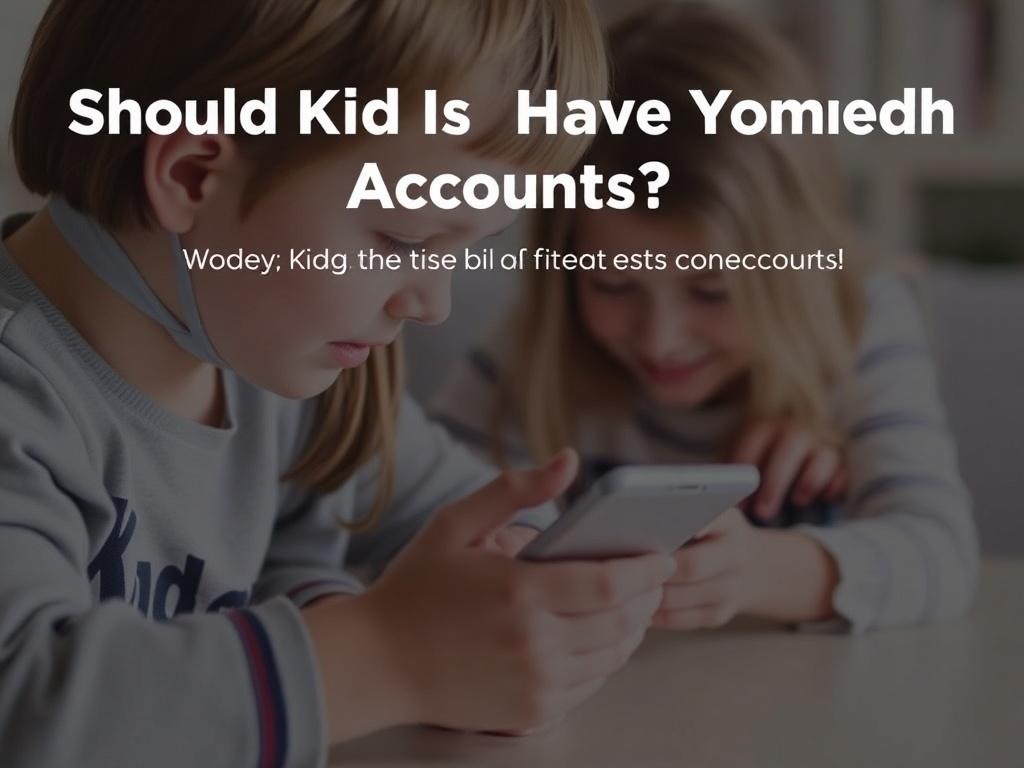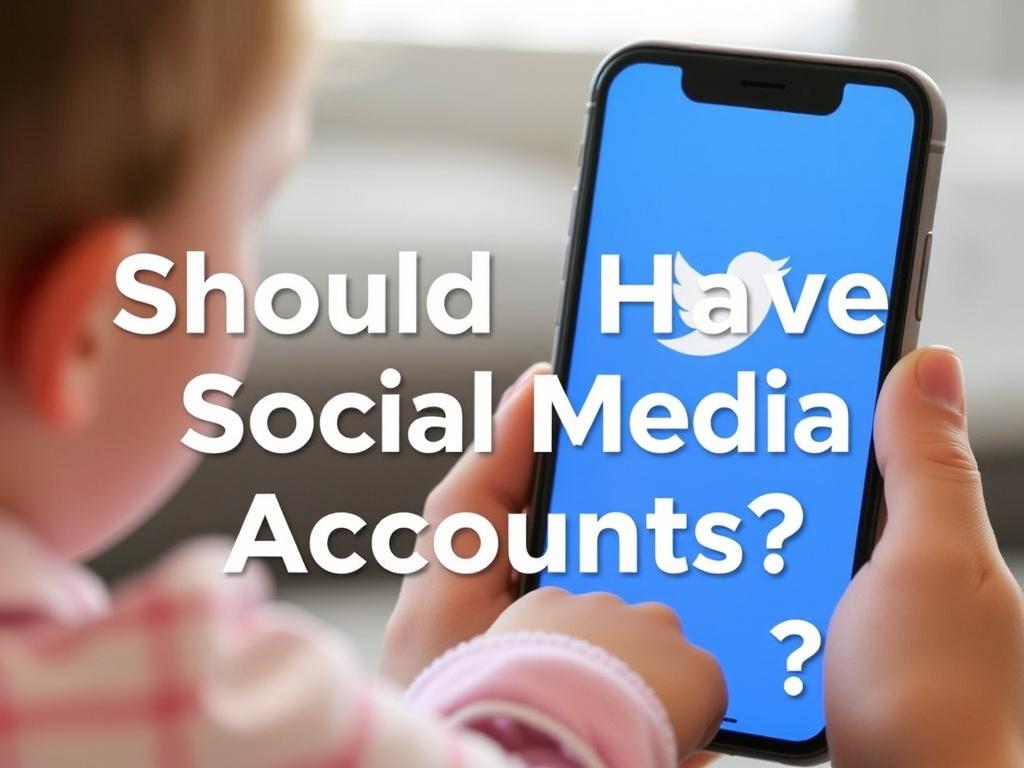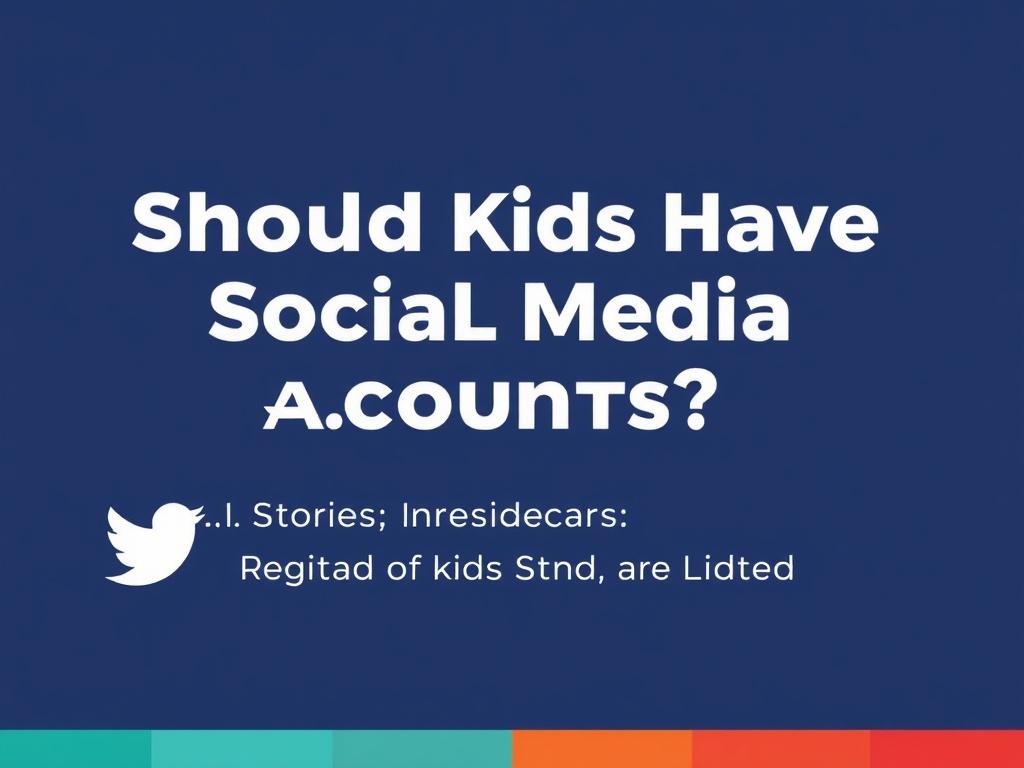SQLITE NOT INSTALLED
In today’s digital age, the question “Should kids have social media accounts?” is more relevant than ever. With platforms like Instagram, TikTok, Snapchat, and Facebook dominating the landscape, children are becoming exposed to social media at younger ages. Parents, educators, and experts all have different opinions about when and if children should be allowed to join these platforms. This article dives deep into the various aspects of kids having social media accounts, weighs the benefits and risks, and offers practical advice for families navigating this complex topic.
The Rise of Social Media in Kids’ Lives
It’s no secret that technology has transformed the way we communicate, learn, and socialize. Social media, in particular, has become a powerful force, shaping trends, culture, and even childhood experiences. Today’s kids often interact with social media differently from previous generations. Instead of being casual users later in life, many children are becoming active users earlier, sometimes before the age of 13, which is the minimum age required by most platforms.
Why are so many children tempted to join social media? For one, it enables them to connect with friends and family wherever they are, share memories, and express themselves creatively. Platforms like TikTok allow kids to make short videos that showcase their talents or humor, while Instagram is a visual diary of their everyday life. However, this rapid integration of social media into children’s lives has raised important questions about safety, privacy, psychological development, and appropriate use.
Understanding the Benefits of Social Media for Kids

It’s important to acknowledge that social media is not inherently bad for children. Like any tool, its impact depends on how it’s used. Here are some notable benefits kids can gain from having social media accounts:
- Enhanced Communication Skills: Social media helps kids learn how to communicate in different formats, including writing messages, posting updates, and sharing multimedia. It promotes digital literacy and the ability to express oneself in a contemporary context.
- Social Connection and Inclusivity: Especially for children who may feel isolated or shy in face-to-face settings, social media can provide a comfortable space to make friends, join interest groups, and feel part of a community.
- Creative Expression: Platforms like Instagram, YouTube, and TikTok enable children to showcase artistic talents, create videos, share photos, and engage in storytelling. This creative outlet can boost self-confidence and motivation.
- Learning Opportunities: Many social media sites offer educational content, tutorials, and resources that encourage curiosity and learning beyond the classroom.
- Developing Digital Responsibility: Early exposure to social media can help children gradually develop an understanding of online etiquette, privacy, and the consequences of digital footprints.
Embracing these benefits involves guiding kids to use social media thoughtfully, with open discussions and support from responsible adults.
The Potential Risks of Kids Using Social Media
While there are clear advantages, we can’t overlook the serious risks linked to children having social media accounts. Understanding these risks is crucial for parents and caregivers looking to make informed decisions.
Privacy and Data Security Concerns
Social media platforms collect vast amounts of data, and children’s personal information can be vulnerable. Kids often don’t grasp privacy settings or the long-term impact of sharing details online. Personal data misuse, targeted advertising, and exposure to inappropriate content are real threats.
Cyberbullying and Online Harassment
One of the most alarming issues is cyberbullying. Children are particularly susceptible to online harassment, which can lead to anxiety, depression, and even tragic outcomes. Social media platforms can sometimes become breeding grounds for negative behaviors due to anonymity and lack of supervision.
Attention and Mental Health Challenges
Excessive social media use has been linked to attention problems, sleep disruption, and mental health challenges like anxiety and depression. Kids may compare themselves unfavorably to others, experience pressure to curate a perfect online persona, or become addicted to screen time.
Exposure to Inappropriate Content
Despite content moderation efforts, children can encounter violent, sexual, or otherwise mature content. Some platforms rely on algorithms that might inadvertently expose kids to unsuitable material based on their interests or search history.
Reduced Physical Activity and Real-World Interaction
Spending excessive time on social media can reduce kids’ physical activity and face-to-face social interactions, which are essential for healthy development. Dependence on digital connections may prevent children from building critical interpersonal skills.
Expert Recommendations and Age Guidelines

Most social media platforms enforce a minimum age of 13, primarily due to COPPA (Children’s Online Privacy Protection Act) regulations in the United States. However, children frequently bypass these guidelines, signing up at earlier ages.
Experts often recommend waiting until children are mature enough to understand the implications of social media use and manage their online presence responsibly. According to child psychologists and digital safety organizations, this age is often around 13 to 16, but it depends on each child’s individual maturity and the type of platform.
Here is a brief table showing popular social media platforms and their minimum age restrictions:
| Social Media Platform | Minimum Age Requirement | Key Features and Risks |
|---|---|---|
| 13 | Designed for broad social connection; privacy concerns and exposure risks. | |
| 13 | Photo/video sharing platform; risk of body image issues, cyberbullying. | |
| TikTok | 13 | Short video content; potential exposure to inappropriate content. |
| Snapchat | 13 | Ephemeral messaging; concerns around privacy and sexting. |
| YouTube | No strict age limit, but COPPA rules apply | Vast video content; children’s exposure to varied types of content. |
Tips From Experts On When and How to Introduce Social Media to Kids
- Assess Maturity: Ensure your child understands privacy, respect, and safe online behavior.
- Start Slow: Help them create accounts together and set clear rules about sharing and interactions.
- Use Parental Controls: Utilize built-in tools and third-party software to monitor and limit usage.
- Keep Communication Open: Foster regular conversations about experiences, dangers, and digital etiquette.
- Focus on Positive Content: Encourage following educational and creative accounts that inspire healthy development.
How Parents Can Create Healthy Boundaries Around Social Media
One of the most challenging parts of deciding should kids have social media accounts lies in managing healthy boundaries. Setting limits that protect kids without isolating them is a delicate balance. Here are some strategies parents can use to create a positive online environment:
Establish Clear Rules and Expectations
Before giving access, parents should outline explicit rules about social media use. This might include time limits, approved platforms, acceptable content, and behavior standards. Written family agreements can be helpful to clarify expectations.
Encourage Offline Activities
Balancing screen time with physical exercise, hobbies, and in-person friendships is vital. Encouraging kids to engage in sports, arts, and social events helps reduce dependency on digital connections.
Monitor without Invading Privacy
Surveillance can breed mistrust, so parents should find a balance between supervision and respect. Tools like shared passwords or device monitoring apps can be useful, but regular open dialogue is more effective to keep kids aware of potential dangers.
Role Model Good Digital Behavior
Children learn by example, so adults should demonstrate responsible social media use. This includes respectful communication, mindful posting, and regular technology breaks.
Discuss Digital Citizenship
Teach your child about the importance of kindness online, recognizing fake news, protecting personal information, and reporting inappropriate behavior.
Real Stories: Experiences of Kids on Social Media

Hearing directly from kids and parents who have navigated these waters can provide invaluable insights. Let’s look at a few real-life examples:
- Emma, 14, Instagram User: Emma says, “I love sharing my favorite art and connecting with other young artists. But sometimes, the mean comments make me feel bad. My parents helped me block those users and reminded me to focus on the positive.”
- Jacob, 12, TikTok Enthusiast: “Making funny videos is fun, but my dad set a rule that I can only post with his approval. It helps me think twice before sharing anything.”
- Susan, Parent of a 10-Year-Old: “At first, I was worried about my son having a social media account. We created a family agreement on safe use, and I check in regularly. It’s become a way for us to connect and learn together.”
- Mark, Parent of a 15-Year-Old: “My daughter started Snapchat at 13, and we had many talks about privacy and respect. It wasn’t easy, but she’s more aware now about the consequences of her digital footprint.”
Alternatives to Traditional Social Media for Kids
If you’re hesitant about allowing young children on major social platforms, consider safer, age-appropriate alternatives designed specifically for kids. These can offer social interaction without the risks associated with mainstream sites.
| Platform | Age Range | Description |
|---|---|---|
| Messenger Kids | 6-12 | A child-friendly chat app managed by parents with robust controls. |
| Kinzoo | 4-12 | Private messaging and content sharing focused on family and close friends. |
| PopJam | 7-12 | Creative social app with strict moderation encouraging art and expression. |
| Kidzworld | 9-17 | Moderated social community with games, forums, and chat rooms. |
Using these platforms can be a stepping stone for kids to learn social media skills in safer environments before graduating to mainstream social media.
Final Thoughts: Making the Decision That’s Right for Your Family
Deciding whether kids should have social media accounts is deeply personal and depends on your child’s maturity, family values, and the specific social media environment. There is no one-size-fits-all answer, but understanding the risks and rewards equips parents and guardians to guide their children wisely.
Remember, social media is a tool—when wielded with care, it can open doors to creativity, connection, and learning. When misused or introduced prematurely, it can bring harm and hardship. By staying informed, staying engaged, and fostering open communication, you can help your child navigate the social media landscape safely as they grow into responsible digital citizens.
Ultimately, the goal is to empower kids with the skills and awareness needed to thrive—not just online, but in all aspects of their lives.
